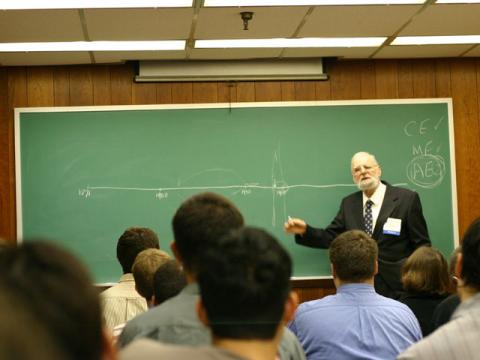Rabbi Israel M. Kirzner predicted to win Nobel Prize
The irony is that while management scholars interested in entrepreneurship and innovation have embraced Kirzner’s concept of entrepreneurial opportunities, neoclassical economists have continued to embrace Walrasian equilibrium, with little interest in the processes of adjustment and coordination highlighted in Kirzner’s work. (The influence of Kirzner’s work on both groups of scholars is easily demonstrated with citation data, which I provide in the links above.) This is not a criticism of Kirzner, of course, but a comment on the state of neoclassical economics. To be sure, the Nobel committee has previously recognized economists whose contributions have not been fully incorporated into the mainstream (Simon, Coase, North, Schelling, Williamson, Ostrom, and of course Hayek). And Baumol’s contributions, which focus on the economics of innovation and technical change, are far more “mainstream” than Kirzner’s. Still, I will be pleasantly surprised if Kirzner gets the early morning phone call!
Peter G. Klein

